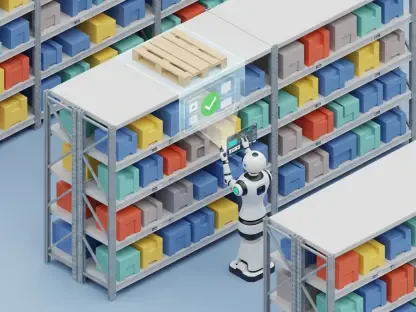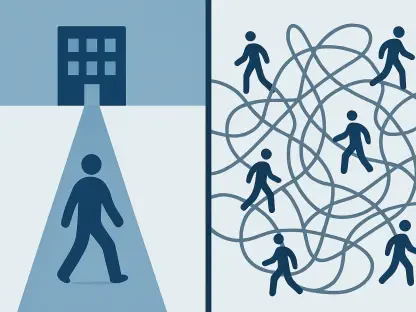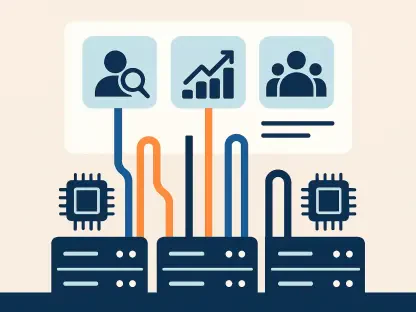I’m thrilled to sit down with Marco Gaietti, a veteran in management consulting with decades of experience in business management. Marco’s expertise in strategic management, operations, and customer relations provides a unique perspective on innovative HR technologies. Today, we’re diving into the world of Immersive Job Previews (IJP) by Paradox, a tool recently recognized as one of the Top HR Products of 2025. Our conversation explores how this technology transforms candidate engagement, enhances transparency in hiring, and leverages AI to create realistic job experiences. We’ll also touch on its impact on turnover and hiring quality, as well as the role of expert insights in shaping these previews.
Can you start by giving us an overview of what Immersive Job Previews by Paradox is all about, and how it helps candidates get a better understanding of a job before they apply?
Absolutely, James. Immersive Job Previews, or IJP, is a cutting-edge tool designed to give candidates a crystal-clear picture of what a job entails before they even submit an application. It uses advanced technology, including AI-driven video simulations, to showcase the day-to-day responsibilities, workplace environment, and expectations of a role. This isn’t just a static job description; it’s an interactive experience that lets candidates see and feel what the job is really like. By doing so, it bridges the gap between expectation and reality, helping candidates make informed decisions about whether a position aligns with their skills and interests.
What do you think sets IJP apart from other job preview tools currently available in the market?
What makes IJP stand out is its blend of realism and interactivity. Many traditional job preview tools are limited to text-based descriptions or generic videos that don’t capture the nuances of a role. IJP, on the other hand, uses AI to create tailored, high-quality videos through its Video Studio, complete with scripts and storyboards generated in minutes. Plus, the Immersive Q&A feature allows candidates to engage directly with a simulated version of the job, asking questions and getting responses based on real employee experiences. This level of personalization and depth is a game-changer compared to more static or one-size-fits-all solutions.
Transparency in hiring is often a challenge for many organizations. How does IJP address this issue in a meaningful way?
Transparency is indeed a sticking point in recruitment, and IJP tackles it head-on by providing an unfiltered look at what a job involves. It strips away the polished, overly optimistic descriptions that sometimes mislead candidates. Through realistic video content and interactive Q&A, candidates get to see both the rewarding aspects and the challenges of a role. This honesty helps build trust between employers and potential hires. For companies, IJP makes it easier to present an authentic view without requiring massive resources, as the AI handles much of the heavy lifting in content creation.
Let’s dive into the AI Video Studio feature. Can you walk us through how it works and why it’s so efficient?
The AI Video Studio is a fascinating component of IJP. Essentially, it uses artificial intelligence to analyze job data and generate scripts and storyboards in just minutes. It pulls from a wealth of information about the role—think responsibilities, required skills, and even company culture—to craft a narrative that feels authentic. Then, it pairs this with visuals and delivers the content through an AI assistant. The efficiency comes from automating what used to be a time-consuming process of scripting, filming, and editing, allowing companies to produce professional-grade videos without a dedicated production team.
Another intriguing aspect is the Immersive Q&A, where candidates can ‘talk to the job.’ Can you explain how this works and what it feels like for a candidate?
The Immersive Q&A is all about creating a conversational experience. Candidates interact with an AI simulation that acts as a stand-in for the job itself, answering questions as if they’re speaking directly to someone in that role. The AI draws on real employee experiences and job-specific data to provide accurate, relevant responses. For a candidate, it feels like having a candid chat with a current employee—asking anything from ‘What’s a typical day like?’ to ‘What are the biggest challenges?’ This kind of dialogue helps them get a deeper sense of whether the job matches their expectations and lifestyle.
IJP is also said to help reduce early turnover. How does providing a realistic job preview impact the likelihood of new hires sticking around longer?
Early turnover often happens because of a mismatch between what candidates expect and the reality of the job. IJP cuts down on this by setting clear, realistic expectations from the start. When candidates have a true understanding of the role—its demands, culture, and rewards—they’re less likely to feel blindsided after starting. They self-select into positions they’re genuinely prepared for, which means they’re more committed and engaged once hired. It’s a proactive way to reduce those costly early exits that hurt both the employee and the employer.
The concept of improving hiring quality through candidate self-selection is really interesting. How does IJP empower candidates to decide if a job is the right fit for them?
IJP empowers candidates by giving them the tools to evaluate a job on their own terms. Through the videos and interactive Q&A, they can explore the nitty-gritty details of a role—everything from daily tasks to team dynamics. This isn’t just a surface-level overview; it’s a deep dive that lets them weigh whether their skills, values, and goals align with the position. By facilitating this self-selection, IJP ensures that only those who feel confident about the fit move forward in the hiring process, which saves time for everyone involved.
I understand that IJP incorporates insights from subject matter experts. Can you shed some light on how these insights are integrated into the system?
Subject matter experts, or SMEs, are typically individuals with deep knowledge of specific roles or industries—think seasoned employees, managers, or HR professionals. Their insights are fed into the IJP system to enrich the content of the previews. This might include detailed descriptions of job tasks, common challenges, or even cultural nuances within the organization. The AI uses this input to create videos and Q&A responses that are not only accurate but also contextually rich, ensuring candidates get a well-rounded perspective that feels authentic and grounded in real-world experience.
Looking ahead, what’s your forecast for the future of tools like Immersive Job Previews in transforming the recruitment landscape?
I believe tools like IJP are just the beginning of a major shift in recruitment. As technology continues to evolve, we’ll see even more personalized and immersive experiences that prioritize transparency and connection. These tools will likely integrate more advanced AI and even virtual reality to simulate entire work environments, letting candidates ‘test drive’ jobs in ways we can’t yet imagine. For employers, the focus will be on scalability—being able to provide these tailored experiences to thousands of candidates without overloading HR teams. Ultimately, the future of recruitment will be about building genuine relationships from the first interaction, and technologies like IJP are paving the way for that.









